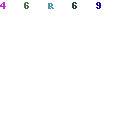Coates challenges audience to find “unspoken truths”
The 2011 College of Arts and Sciences two-day colloquium proved a significant reflection on American culture, values, history and education. The keynote speaker, Ta-Nehisi Coates, added to the colloquium’s wide range of intellectual reflection with his presentation – A Deeper Black: The Meaning of Race in the Age of Obama.

Ta-Nehisi Coates, author of "The Beautiful Struggle" and writer/contributing editor for "The Atlantic Monthly," and contributor to "Time," "O," "The Village Voice," and "The New York Times," presented "A Deeper Black: The Meaning of Race in the Age of Obama."
Coates, a contributing editor for “The Atlantic Monthly;” a contributor to “O,” “The New York Times Magazine” and “Time;” and author of the memoir “The Beautiful Struggle,” urged a packed audience to find the “unspoken truths” and the “unspoken words” that America is avoiding in this age – the age of President Barack Obama.
“What I like to do in my writing and in my reporting and in my words… in whatever issue it is that I’m trying to tackle, is I always try to look to what are the unspoken evils that we are not talking about. What are the things that nobody wants to talk about that we really should be challenging?” said Coates.
Coates’ poignant presentation delved heavily into the history of the America Civil War, the Civil Rights Movement and the legacy of Dr. Martin Luther King Jr.
“The thing I admire about King was his consistency and his willingness to say things that people were not willing to hear,” Coates said. “King was masterful because he could tell you about why America was great and then ask America to stand up to it. The Declaration of Independence – that’s great, these are great words. Now, live up to it.”
Coates talked briefly about the role of President Barack Obama as the first African American president and the meaning of that role, but he left it to the audience to think about the significance of an African American president in 2011.
“Obama is black but he is a politician and I think that is a much more salient point when you’re comparing him to people like Dr. Martin Luther King Jr. and the people [who] came before him. King was an activist – the only man he had to pay attention to was his conscience and what he believed in his heart,” said Coates. “Obama also has to pay attention to his conscience but more importantly he has to pay attention to the consensus of the people that he represents … so there is a kind of calculus that a politician has to be that an activist never has to be.”
Students and faculty members alike were moved and inspired by Coates’ challenging presentation.
“It was pretty good. I liked some of the things he said about Barack Obama and how he [President Obama] can’t speak about certain things because people would probably jump all over him,” shared William Caldwell, freshman.
In Coates’ presentation, he touched on some of the challenges of his past. He spoke about growing up poor in West Baltimore and leaving Howard University, where he was enrolled, before completing his degree program.
“[The presentation] was actually interesting. It was better than I thought it would be,” said Deion Thomas, mass communications freshman. “[Coates] said he got kicked out of high school twice and he did not graduate from college but he still was ambitious … it makes me want to stay in school… if he didn’t graduate and still was successful, if I graduate I could be just as successful or even more successful.”
Coates also signed copies of his book, “The Beautiful Struggle,” after his presentation.
Filed Under: African Studies • Anthropology • Art and Design • Asian Studies • Biological Sciences • Black Studies • Chemistry • Classical Studies • Economics • English Language & Lit • Environmental Sciences • European Studies • Foreign Languages & Lit • Geography • Historical Studies • Latin American Studies • Liberal Studies • Mass Communications • Mathematics & Statistics • Music • Peace & Intl Studies • Philosophy • Physics • Political Science • Pre-Law • Public Admin & Policy • Religious Studies • Social Work • Sociology & Criminal Justice • Speech Communication • Teacher Education • Theater & Dance • Women's Studies












